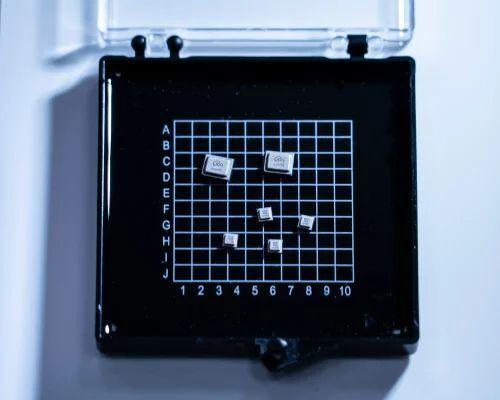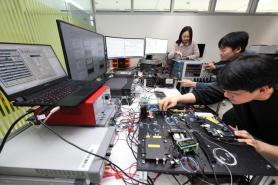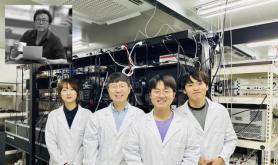
SEOUL, February 07 (AJP) - South Korea’s three major telecommunications companies - SK Telecom, KT, and LG Uplus - are intensifying efforts to commercialize quantum encryption technology, positioning themselves as key players in the business-to-business security market.
While each company has made notable progress in advancing and securing quantum encryption solutions, full monetization remains a long-term prospect.
Quantum encryption is emerging as a critical defense against the hacking threats posed by quantum computing. By leveraging principles of quantum mechanics, it significantly enhances encryption security.
The technology is broadly categorized into two key areas - the Quantum Key Distribution (QKD) and the Post-Quantum Cryptography (PQC) methods.
The QKD generates encryption keys using secret random numbers without discernible patterns, rendering decryption virtually impossible, while the PQC utilizes quantum entanglement to ensure that only the intended sender and recipient can decode encryption keys.
SK Telecom has been at the forefront of quantum encryption research since establishing its quantum technology research center in 2011. The company strengthened its position in 2018 with the acquisition of ID Quantique, a global player in quantum security.
Since 2020, SK Telecom has collaborated with Samsung Electronics to develop the “Galaxy Quantum” smartphone series, which incorporates quantum number generator chips to enhance mobile device security.
In October 2024, SK Telecom introduced a hybrid encryption solution combining QKD and PQC, integrating ID Quantique’s Clavis XG system with its proprietary PQC software. This dual-layer approach encrypts data at both transmission and endpoint levels for maximum security.
Furthering its advancements, SK Telecom’s QKEV7 quantum encryption chip received a certification from South Korea’s National Intelligence Service in November 2024 - marking a significant milestone in the company’s push toward commercialization.

KT has focused on integrating quantum encryption into its Virtual Private Network (VPN) services to bolster enterprise data security.
At the end of 2024, the company successfully demonstrated its Hybrid Quantum-Secure VPN Service, which employs QKD to prevent eavesdropping and PQC to guard against future quantum computing threats.
Additionally, KT plays an active role in South Korea’s national quantum strategy. It is a key participant in a quantum project, overseen by the Ministry of Science and ICT and the National Information Society Agency. As part of this initiative, KT has developed its integrated quantum encryption communication monitoring platform.
LG Uplus, taking a different approach, has centered its efforts on identity security. The company recently launched “AlphaKey,” an identity management solution that enhances corporate account security through PQC and homomorphic encryption.
“AlphaKey is designed to efficiently manage enterprise account access and permissions while providing enhanced security against cyber threats in the quantum era,” an LG Uplus official said.
The company expects significant demand from cost-sensitive sectors such as finance, government, and public enterprises.
Despite rapid technological advancements, commercialization of quantum encryption remains a long-term objective.
Government support, however, offers a promising outlook. The Ministry of Science and ICT designated 2025 as a pivotal year for quantum technology development and is working to establish a robust quantum ecosystem.
Next month, the government plans to launch the so-called Quantum Strategy Committee, which will define policies to drive quantum innovation.
“For quantum encryption to gain widespread adoption, market awareness must increase,” said one industry expert. “This year should be seen as the introduction phase, with full-scale commercialization still some time away.”
Copyright ⓒ Aju Press All rights reserved.




